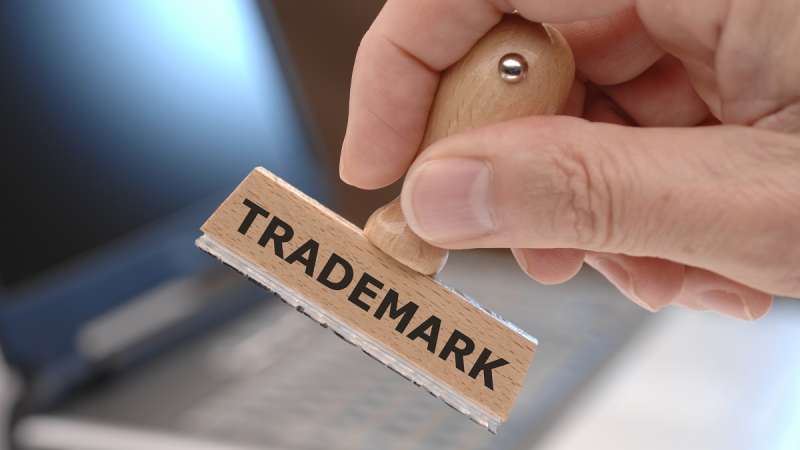Shareholder, Board & Director Disputes
Disputes may arise within any company, whether it's a small family run business or a large corporation.
Typically, these involve conflicts between individuals who have a vested interest in the company's success, such as majority and minority shareholders and directors.
Examples of disputes we encounter regularly include:
- Breach of Director’s Statutory and Fiduciary Duties: When a director fails to act in the best interests of the company, misuses company assets, diverts business away from the company, fails to act as required by the Company’s Articles of Association or acts in breach of their statutory duties under the Companies Act 2006, it can lead to serious claims, disputes and conflicts between shareholders or directors and / or the company.
- Shareholder Oppression: Shareholders may feel marginalised or unfairly treated by other shareholders or directors, leading to conflicts and disputes over control, composition of the Board, profit distribution, payment of directors salaries and benefits, commercial transactions, exercise of voting rights and the issue and transfer of shares (especially where compulsory and/or bad and good leaver share transfer notices/valuations are triggered).
- Disagreements on Company Strategy and Deadlocks: Shareholders and directors may have differing visions for the company's future, leading to conflicts over crucial decisions, such as mergers, acquisitions, or major investments and/or a “deadlock” between shareholders or directors where there are equal shareholdings/votes or shareholder/director consents required for a transaction or cause of dealing.
- Breach of Shareholder/Investment Agreements: Where a shareholder has acted or threatened to act in breach of a contractual obligation, responsibility or restrictions set in shareholders/investment agreement.
Our Approach to Shareholder Disputes
At Myerson, our dispute resolution solicitors understand the importance of resolving disputes promptly to protect your interests and the company's stability and performance.
Our approach to shareholder disputes is focused on providing swift and decisive action to address your specific needs including where necessary and appropriate obtaining an injunction to prevent loss to a company or shareholder.
Our experienced team of shareholder dispute solicitors focus upon understanding your unique circumstances and advising you on the most favourable resolution in order to meet your objectives.
Whether through negotiation or litigation or both at the same time, we are committed to resolving disputes swiftly and decisively using every tool at your disposal to ensure your rights and investment are protected.
Our shareholder dispute lawyers recognise every shareholder dispute is different, and whilst in some cases, the best or only way to achieve a satisfactory resolution will be through court action, in other cases, a more cost-effective and tax efficient outcome may be achieved by a negotiated agreement between the shareholders and restructuring the ownership arrangements.
For example, sometimes utilising a demerger, purchase of own shares or a Newco purchasing structure can be utilised to resolve a dispute.
Our dispute resolution team work with our Corporate Department to ensure that every possible deal structure is considered to ensure we can achieve the best possible dispute resolution solution for you.
Negotiated Solution
Whenever possible, often parallel with legal proceedings we will strive to achieve an amicable resolution through skilful negotiation.
Our shareholder dispute lawyers will guide you through this process to put you in the best negotiating position to explore options for compromise and facilitate constructive dialogue among the parties involved in order for you to reach a beneficial agreement.
Potential solutions can include a buyout by the continuing shareholders in the Company, with flexibility as to how that buyout would be structured such as a purchase of shares by a third party and / or by way of company buyback of shares or demerger.
Contentious Options
If negotiation proves unsuccessful or impractical, we are prepared to pursue or continue court action in order to assert your rights and seek a fair resolution.
Possible shareholder dispute actions may include:
- An Unfair Prejudice Petition: if the company's affairs are conducted in a manner that is unfairly prejudicial to the interest of all or some of the company's members. Typically, this will result in the shareholder that has suffered the unfair prejudice being bought out by the other shareholders, however the court has wide discretion as to the orders it can make to address the unfair prejudice complained of such as the court ordering another shareholder from acting against your interests.
- A Derivative Action: If a director breaches their fiduciary duties or engages in fraudulent conduct, minority shareholders may have the option to bring a derivative action on behalf of the company. This legal action seeks to hold the responsible parties accountable and recover damages for the company.
- A Just and Equitable Winding-Up: In exceptional cases where the dispute cannot be resolved through other means, we can assist you with an equitable winding-up process. This involves the orderly dissolution of the company, ensuring fair distribution of assets and liabilities among shareholders. This is particularly useful where a solvent company is asset rich with property or cash and has little or no goodwill value.
- Contractual claim for a breach of a Shareholder Agreement: If a shareholder causes a loss by failing to comply with their contractual obligations or breaches agreed restrictions such as non-compete clauses.
- Pursuing a Shareholders Agreement procedure or remedy set out in a Shareholder Agreement and/or Articles of Association. Sometimes these corporate agreements detail procedures that can be followed to settle a dispute or deadlock such as Expert Determination , Deadlock buy-out procedures (often called Russian Roulette or Mexican Stand-offs) and Compulsory Share Transfer Notices following a material breach of a Shareholders Agreement (with Good, Bad and sometimes Intermediate Leaver’s valuation)
Our solicitors have extensive experience in handling complex shareholder dispute High Court litigation.
We will support you every step of the way during the claims process to ensure we achieve the best outcome for you.
Our Shareholder Disputes Expertise
Section 994/minority shareholder petition
The classic litigation process for resolving shareholder disputes is the unfair prejudice petition under Section 994 of the Companies Act. This is typically brought by a minority shareholder in circumstances where the company’s affairs have been or are being conducted in a manner that is unfairly prejudicial to the interest of all or some of the members of the company.
Unfairly prejudicial conduct
For conduct to be unfairly prejudicial, it must cause prejudice or harm to an interest of some or all of the members of the company and it must be unfair. Examples of unfairly prejudicial conduct are:
- Failure to pay dividends to the shareholders;
- Exclusion from management where there is a justified expectation of involvement;
- Breaches of the articles of association;
- Majority shareholders awarding themselves excessive remuneration; and
- Inequitable conduct.
The Court will take into account whether a “quasi-partnership” exists. This is where the company has been formed on the basis of mutual trust and confidence between individuals who expect to participate in the management of the business. This can afford minority shareholders additional protection in an unfair prejudice petition.
Remedies
- The Court has a very wide discretion to grant relief where unfair prejudice is found. The most common relief sought and granted is the purchase of shares which allows a “clean break” between the shareholders who can no longer work together. Other orders that the Court can make include:
- Regulating the conduct of the company’s affairs in the future;
- Requiring the company to refrain from or carrying out an act;
- Authorising civil proceedings to be brought in the name of the company; and
- Prohibiting the company from making changes to the articles of association.
Derivative Action
Shareholders may bring a derivative action when a wrong has been committed against the company but the directors are unable or unwilling to pursue it themselves. Under the Companies Act 2006, derivative actions give shareholders the power to challenge the acts or omissions of a director or third party when it involves negligence, default, breach of duty or breach of trust. This allows shareholders to “stand in the shoes” of the company.
Procedure
Derivative actions are restricted to a very narrow set of circumstances, which is usually breached by a director of duties to the company.
After the derivative action has been issued, the shareholder must apply for the Court’s permission to continue with it.
The application may be automatically dismissed if the court considers that a person acting under the duty to promote the success of the company would not pursue the claim; or the act or omission complained of was authorised or ratified by the company. There are various other factors which are considered at this stage, including:
- Whether the shareholder is acting in good faith
- Whether the company has decided to pursue the claim
- Whether the member has a cause of action that they can pursue in their own right; and
- The views of other shareholders who have no personal interest in the application.
Costs
One of the main attractions of bringing a derivative action is that the company can be ordered to indemnify the shareholder for costs where:
- the claim could have reasonably been pursued by the directors,
- the claimant’s only interest in the outcome of the claim is as their capacity as a shareholder and
- the benefit from the action will accrue to the company.
Just and Equitable Winding Up
Shareholders can petition for the winding up of a company on the grounds that it would be just and equitable to do so. The authority for this is s122(1)(g) of the Insolvency Act 1986 and it is generally considered a last resort because it can be highly disruptive to ordinary trade.
The company, a director, creditor or shareholders (and other contributors who meet certain requirements) can seek a winding-up petition.
In the vast majority of cases, it is a minority shareholder who presents the petition due to the grounds which must apply for the petition to be successful.
The grounds
The presenter must show that they have sufficient interest in the winding up and must demonstrate that there will be a tangible benefit i.e. that there will be a monetary surplus after the winding up.
The court will look at each case on its own merits, however common grounds include:
- Exclusion from management;
- Mismanagement;
- Excessive director remuneration whilst refusing to pay dividends;
- Deadlock; and
- Loss of substratum- the company can no longer pursue its original purposes, either because it has achieved them or otherwise.
Even if the Court considers that a ground has been established, it may refuse to grant the petition if there is an alternative remedy available and where the petitioners are found to be acting unreasonably in petitioning to have the company wound up instead of pursuing this alternative.
Warranty Claim after Share or Business Sale
In relation to the sale of shares or a business, warranties are statements in the contract regarding the business’ condition and financial standing. They offer some protection to the buyer who is often exposed to considerable risk when purchasing shares and assets of a business.
Warranty claim and limiting liability
A buyer may find that after they have purchased the business, its affairs are not quite what they expected. If the seller made a warranty that turns out to be untrue, the buyer can make a claim for breach of that warranty to recover damages for the loss of value of the business that has resulted from the breach.
The seller will often try to limit their potential liability under warranties by restricting the circumstances under which a claim can be made and the value of the claim. This includes:
- The seller will usually qualify their liability on an awareness basis. Therefore, they would not be in breach of a warranty if they were unaware of an issue or circumstance at the time of making that warranty.
- Financial caps. A minimum limit will prevent the buyer bringing low-value claims and a maximum cap will limit the amount the buyer can claim in damages. The maximum cap is usually the total consideration received for the business.
- Time limits on bringing a claim. This is usually 2 or 3 years apart from any warranties relating to tax which are normally subject to longer periods.
Boardroom or Partnership Disputes
Boardroom disputes
Disputes can arise between the directors of a company for many reasons, including disagreements over the direction of the company and problems with the performance of directors or removing a director from the board.
Claims against directors who are acting wrongfully can only be brought by the company itself and not shareholders or other directors. However, shareholders do have some options, such as derivative actions and a minority shareholder petition.
Partnership disputes
The most common disputes that arise regarding a partnership are liability and departure. Partners are financially liable for the partnership and so a third party can make a claim against both the partnership and the partners themselves. A dispute may arise about how liability is proportioned.
Partnership disputes also occur when one or more of the partners want to leave the partnership. Disagreements may arise over the terms of their departure. For example, they may want to withdraw any money that they invested in the partnership, which could cause a problem for the business and the remaining partners.
The way that partnership disputes will be dealt with depends on whether there is a partnership agreement. Most partnerships will have such an agreement, however, there may be some circumstances where two or more people informally enter into business together but may still be considered to be in a partnership. This may make any dispute that arises more difficult to resolve as there will be no guidance from the partnership agreement.
Company Restorations
Companies can be dissolved or struck off the Companies Register for various reasons. When this happens it means they no longer exist in a legal capacity. However, it is possible to restore the company back to the Register.
Reasons for restoration
It may be desirable for a company to be restored for a number of reasons. The most common reasons are when:
- A company has been struck off the Register for failing to file annual returns and accounts but it continues to trade;
- There is an unresolved claim for or against the company and in order to obtain compensation or redress it must be restored; and
- The company had title to an asset that is of value or importance to another company.
There are two ways to restore a company, by administration registration and restoration by court order.
Administration restoration
This method of restoration is where an application is made to the Treasury Solicitors and Companies House. This is often used where the reason that the company needs to be restored is that it has been struck off for not filing company documents at Companies House. It is a relatively inexpensive and fast way to restore a company, but there are certain conditions which must be met.
Court order restoration
Restoration by court order is often used when the company has been struck off by the directors voluntarily and it is not possible to use the administration method. However, it can also be used where the company has been struck off for not filing documents at Companies House, as long as it was carrying on business at the time it was struck off. In circumstances other than these, the court can restore the company if it considers it just to do so.
The effects of restoration
If the company is successfully restored, it will be deemed to have continued as though it had not been struck off or dissolved.
Sometimes it will not be enough to simply restore the company to the Register. The court has the power to make provisions to enable the company and any other persons to be put back in the position they would have been if the company had not been dissolved or struck off.
Breach of Fiduciary / Director Duties
Directors are in a position of responsibility and trust and must carry out the company’s business having regard to the best interests of the company and the shareholders. They must put the interests of the company over their own personal interests.
The duties
A director owes certain duties under both common law and the Companies Act 2006, which include:
- Duty to act within powers.
- Duty to promote the success of the company.
- Duty to exercise independent judgment.
- Duty to exercise reasonable care, skill and diligence.
- Duty to avoid conflicts of interest.
- Duty not to accept benefits from third parties.
- Duty to declare interest in proposed transaction or arrangement.
In certain circumstances, the above duties can be set aside by the authorisation of the members. For example, the duty to avoid conflicts of interest can be complied with by disclosing such an interest to the directors who may then authorise and proceed with the transaction or arrangement.
A director must also perform in accordance with the fiduciary duties to act in good faith, in the best interests of the company and to use their powers solely for the purpose for which they were granted. Further, directors must comply with the duties to keep accounts up to date and maintain records.
Consequences of the breach
The duties are owed to the company and so only the company can enforce them. However, shareholders may be able to bring a derivative action against a director in certain circumstances.
Remedies and penalties for a breach of duties include:
- An injunction;
- Setting aside the transaction;
- Disqualification of the director; and
- Damages
Why Work With Our Dispute Resolution Team
- For the past seven years, the Legal 500 has rated us as a Top Tier legal firm.
- You will get access to more than 9 dispute resolution professionals from the Myerson Dispute Resolution Group, who will assist you with , shareholder, and partnership disputes, professional negligence, commercial agency and more.
- You will obtain city-quality dispute resolution legal help at regional pricing.
- We offer a partner-led service to make sure you get the greatest legal counsel and support with a focus on business.
- Our large and experienced team can work quickly to fulfil your deadlines.
- We recognise that each transaction is unique to your specific circumstances and that you require the assistance of a dispute resolution solicitor who has dealt with a wide range of clients and types of work.
- We are a full-service law company with a single location, which ensures our employees interact effectively and efficiently.
- We employ the most recent technology to make sure that we are operating as effectively as possible and that a client's location is not a barrier to us providing outstanding customer service.
- All of our clients receive free newsletters and webinars that keep them informed about dispute resolution legal developments. View our most recent webinar on dispute resolution updates here.
- Check out the Myerson Promise for more information on the benefits of working with us.
Funding
Our Dispute Resolution Solicitors are happy to discuss your situation in a no-obligation and free consultation by telephone.
We also offer different funding arrangements to suit your individual needs. Conditional fee agreements or “No win, no fee” arrangements may be available, as may insurance policies or third-party funding.
At Myerson, our litigation funding team will provide guidance in handling the financial risk that comes with litigation and directing any of those costs off your credit sheet.
We understand the costs that come with litigation, which is why we act with integrity. We will only provide funding as an option if it is in your best interests. We can advise you on whether your claim is suitable for litigation funding.
Find out more about the different litigation funding options that may be available to you.
About Us
Myerson are a leading commercial firm, which is renowned for its work in resolving shareholder disputes. Our commercial litigation team is ranked as “Top Tier” by the Legal 500 who describe us as ‘dynamic, positive, forward-thinking, effective and tenacious’, ‘very client-friendly’ and who give ‘sound and sensible legal advice’. The Legal 500 highlight the department for its work in shareholder disputes.
The litigation team contains 15 solicitors and is headed by Adam Maher whom the Legal 500 rate as a “Leading individual” and ‘first-class litigator’ with ‘razor-sharp commercial judgement, tenacity and excellent communication skills’; who ‘quickly identifies the core issues’ and is ‘extremely robust under pressure.'
The litigation experts at Myerson are happy to discuss your situation in a no-obligation telephone call to assess your claim, give preliminary advice and suggest a way forward. We can also suggest innovative funding solutions where available to assist with the costs of the litigation.
Our Approach To Shareholder Disputes | Video
Case Studies
We have advised shareholders on a wide range of disputes across a variety of sectors.
Acting for shareholders in a technology company.
Two shareholders had fallen out with their co-director and shareholder. A share transfer notice contained in a shareholder’s agreement was triggered by the shareholders against their business partner due to transactions that were carried out which could have brought the business into disrepute. The business partner disputed the allegations and threatened action for unfair prejudice pursuant to Section 994 of the Companies Act. The matter was settled on a commercial basis and the partner resigned as a director and sold his shares for a negotiated sum.
Acting for a director and shareholder in an action for unfair prejudice under S.994 of the Companies Act 2006
This was a hotly disputed case where both parties, who were 50/50 shareholders in the company wished to buy each other out of the nursery business. An unfair prejudice petition was issued due to persistent unauthorised withdrawals from the company business account.
Very early on in the proceedings, the Respondent made an offer pursuant to the case of O’Neill and Phillips (No 00709 of 1992): HL 20 May 1999. That case held that if a Respondent makes an offer for all that the Petitioner could reasonably hope to achieve at trial then the Petitioner’s refusal will be unreasonable and justify a striking out of the petition.
The Respondent made another offer pursuant to CPR Part 36, which offered either for the Respondent to buy out the Petitioner from the business or vice versa. After lengthy and difficult negotiations, the Part 36 offer was accepted by the Petitioner who was bought out of the business by the Respondent. The Petitioner was also entitled to her costs up to the date of expiry of the relevant period of the Part 36 offer.
Acting for the litigation friend of a former shareholder who had transferred his shareholding in the family company which he had founded to a family member for nil consideration.
The former shareholder also had an outstanding loan account with the company. Proceedings were commenced against the family member alleging undue influence, misrepresentation and unconscionable bargain. Proceedings were also commenced against the company for repayment of the director’s loan. An agreement in principle was reached at mediation but was not completed and therefore the claim went to a five day trial but settled after evidence on the first day.
Acting for the claimant in a derivative action by a minority shareholder in the company under Part 11, Chapter 1 of the Companies Act 2006.
The claim arose out of the alleged substantial misappropriation of company assets by the sole director and majority shareholder. Various applications to the High Court for urgent injunctive relief have been necessary, including the appointment of a receiver in order to safeguard the company’s assets, as well as a joinder application consolidating concurrent proceedings initiated by the company against its former company secretary in respect of related issues surrounding the misappropriation of assets.
We secured an indemnity for the claimant for the entire costs of the litigation, irrespective of the outcome of the proceedings and successfully secured the substantial assets of the company from potential dissipation.
Testimonials
Meet Our Specialists
Home-grown or recruited from national, regional or City firms. Our specialists are experts in their fields and respected by their peers.
Contact Our Experts
You can contact our lawyers below if you have any more questions or want more information:









